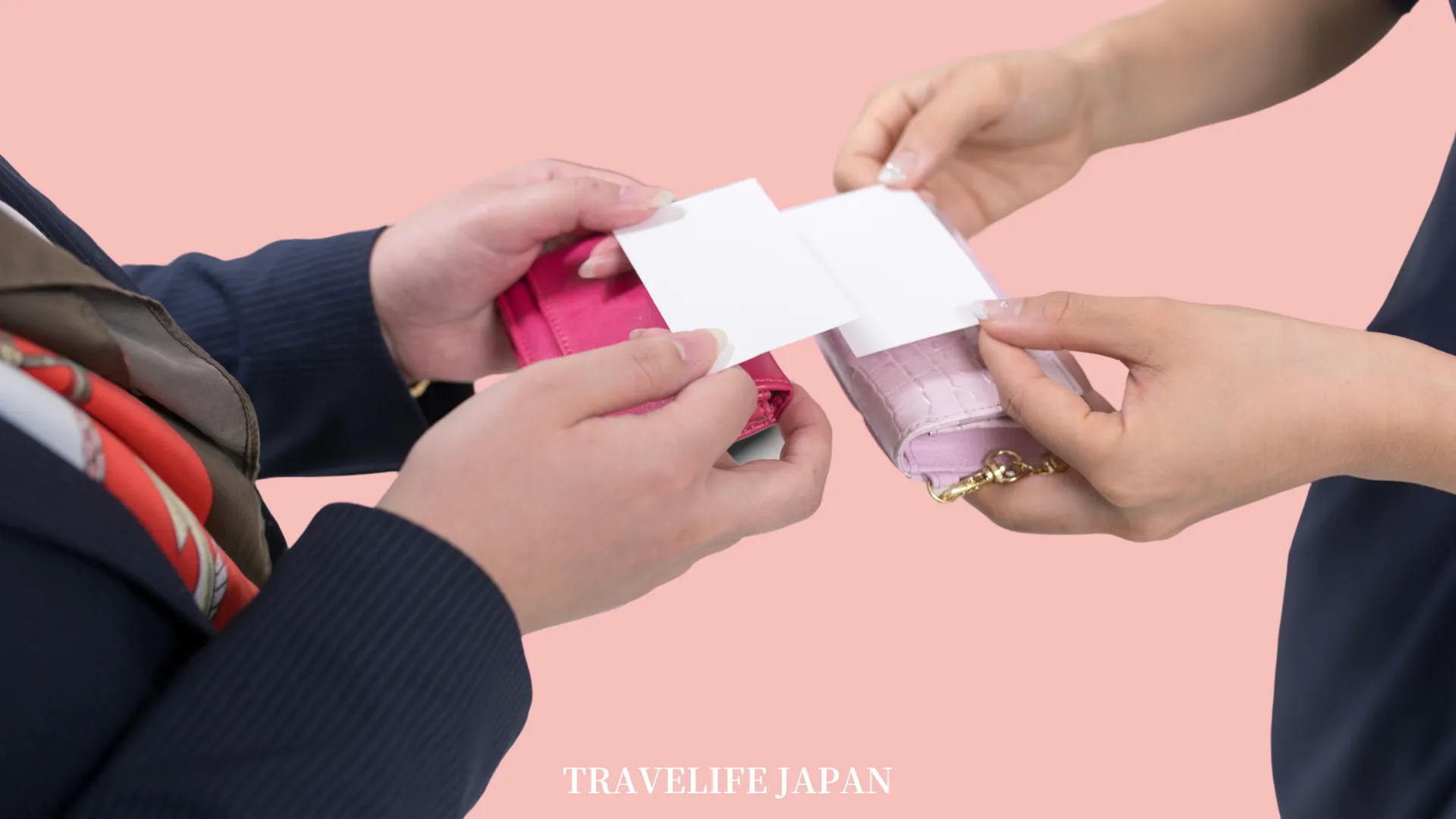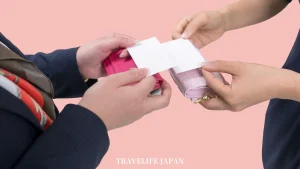Are you aiming to navigate the unique landscape of Japanese business communication effectively? Our overview equips you with the language skills and cultural insights needed for professional settings in Japan. From mastering communication to understanding etiquette, this guide is indispensable for anyone preparing for business interactions with Japanese clients or companies.
Want to learn Japanese in Japan? Ask any questions!
Apply with Travelife Japan to receive personalized guidance, application support, and a smoother enrollment experience.
Japanese Business Culture

Japanese business culture is a rich tapestry of traditions, etiquette, and communication styles. Understanding this cultural fabric is not just about learning a language; it’s about comprehending the underlying values and behaviors that define Japanese professionalism.
Concept of “Wa” (和) – Harmony
- Harmony Over Conflict
In Japanese business culture, maintaining harmony (‘Wa’) is critical. This ethos influences all aspects of business conduct, from decision-making to conflict resolution. It encourages consensus-building and discourages confrontation. - Group Orientation
Japanese businesses prioritize the group over the individual. Decisions and achievements are often viewed as the result of collective effort rather than individual contribution. This influences communication, where directness or self-promotion is often avoided to maintain group harmony.
Politeness and Respect
- Hierarchy and Respect
Japanese business culture is hierarchical. Respect for seniors and adherence to protocol are deeply ingrained. Communication and behavior are often modified according to the status and position of the people you are interacting with. - Language and Respect
The language reflects this hierarchy. Different forms of verbs and specific honorifics are used to show respect, particularly in ‘Keigo’ (honorific speech).
Non-Verbal Communication
- Reading the Air
‘Kuuki o yomu’ (空気を読む), or reading the air, is a valued skill. It involves understanding unspoken cues and the emotional atmosphere to respond appropriately in business interactions. - Body Language
Bowing, for instance, is not just a form of greeting but also a display of respect and humility. The depth of the bow often correlates with the level of respect being shown.
Meeting Etiquette
- Preparation and Punctuality
Meticulous preparation for meetings and punctuality are highly valued. Being late is seen as a sign of disrespect. - Nemawashi (根回し)
This is an informal process of laying groundwork for a proposed change or project. Before a formal meeting, extensive discussions and consultations occur behind the scenes to ensure smooth decision-making.
Business Relationships
- Building Trust
In Japanese business culture, building strong, trusting relationships is essential. Business dealings often go beyond mere transactions and are seen as building blocks for long-term relationships. - Company Loyalty
Employees often show a high level of loyalty to their companies, sometimes spending their entire careers with a single firm. This loyalty is reciprocal, with companies often providing extensive welfare and job security.
Others
- The Role of Silence
Silence is used effectively in Japanese business communication. It can indicate disagreement, contemplation, or respect. Understanding the nuances of silence can be as important as understanding spoken words. - Attire and Appearance
Japanese business attire is typically formal. Suits are standard, and there is an emphasis on neatness and subtlety. This reflects the overall attitude of professionalism and respect. - Gift Giving
Gift giving, or ‘Omiyage’, is a common practice, especially when returning from trips or as a gesture of goodwill in business dealings. These gifts are not meant to be grand but are a sign of courtesy and thoughtfulness. - The Concept of “Gaman” (我慢) – Endurance
Patience and the ability to endure uncomfortable or challenging situations without complaint is valued. This trait, known as ‘Gaman’, is often seen in the Japanese workplace’s approach to handling pressure and stress.
Key Japanese Business Phrases and Vocabulary

Effective communication in Japanese business settings involves not just fluency in the language but also familiarity with key phrases and vocabulary that reflect respect, politeness, and professionalism. Here’s an in-depth look at essential Japanese business phrases and vocabulary, which can serve as a toolkit for navigating various professional scenarios in Japan.
Basic Business Greetings and Farewells
- Ohayō gozaimasu (おはようございます)
“Good morning.” A must-use phrase for starting the day in any professional setting. - Konnichiwa (こんにちは)
“Good afternoon.” Used from midday onwards. - Konbanwa (こんばんは)
“Good evening.” Used in the late afternoon and evening. - Otsukaresama desu (お疲れ様です)
A versatile phrase meaning “thank you for your hard work,” used both as a greeting and a farewell.
Introductions and Self-Presentation
- Hajimemashite (はじめまして)
“Nice to meet you.” Used when meeting someone for the first time. - ___ to mōshimasu (___と申します)
“My name is ___.” A polite way to introduce oneself. - ___ desu (___です)
A simpler way to state your name or affiliation.
Meetings and Presentations
- Kaigi o hajimemashō ka (会議を始めましょうか)
“Shall we start the meeting?” - Kyō no gidai wa ___ desu (今日の議題は___です)
“Today’s agenda is ___.” - ___-san, purezen o onegai shimasu (___さん、プレゼンをお願いします)
“Mr./Ms. ___, please start the presentation.” - Iken wa arimasu ka (意見はありますか)
“Do you have any opinions?” A phrase used to invite comments or suggestions.
Phone Conversations
- Moshimoshi, ___ desu (もしもし、___です)
“Hello, this is ___.” Used when answering the phone. - Shōshō omachi kudasai (少々お待ちください)
“Please hold on a moment.” - ___-san wa irasshaimasu ka (___さんはいらっしゃいますか)
“Is Mr./Ms. ___ available?”
Email Communication
- ___-sama (___様)
A respectful title used when addressing clients or superiors in emails. - Heiso yori o-sewa ni natte orimasu (平素よりお世話になっております)
A common opening line in emails, meaning “Thank you for your continuous support.” - ___ no ken de mēru itashimashita (___の件でメールいたしました)
“I am writing to you regarding ___.”
Showing Gratitude and Respect
- Arigatō gozaimasu (ありがとうございます)
“Thank you.” A must-know phrase in any interaction. - Sumimasen (すみません)
“Excuse me” or “I am sorry.” Used to apologize or get someone’s attention. - Otsukaresama deshita (お疲れ様でした)
“Thank you for your hard work.” Said at the end of the day or a meeting.
Vocabulary for Business Contexts
- Kaisha (会社): Company.
- Jimusho (事務所): Office.
- Keiretsu (系列): A set of companies with interlocking business relationships and shareholdings, common in Japan.
- Shachō (社長): Company president.
- Bucho (部長): Department manager.
- Hōkokusho (報告書): Report.
- Kigyō (企業): Corporation or enterprise.
Mastering Keigo: The Art of Japanese Honorifics
- Sonkeigo (尊敬語): Respectful Language
Sonkeigo is a form of Japanese honorific language that’s used to express respect towards others. This is particularly crucial when talking about or directly addressing superiors, clients, or anyone deemed to hold a higher status in the social or business hierarchy. The use of Sonkeigo involves altering the basic form of verbs to a more respectful version, often adding special prefixes or using entirely different vocabulary. For instance, the standard verb “suru” (to do) becomes “nasaru” in Sonkeigo. This form of language is essential in maintaining harmony and showing deference in professional interactions. - Kenjōgo (謙譲語): Humble Language
Kenjōgo, or humble language, is a vital component of Japanese etiquette, especially in business. It involves adjusting one’s language to show respect by downplaying one’s status or that of one’s group when speaking to higher-ranking individuals. This approach, a cornerstone of professional interactions, emphasizes humility and respect towards others’ superior status. For instance, substituting the common verb “iu” (to say) with “mōsu” reflects this deference. Mastery of Kenjōgo is essential for anyone looking to navigate Japanese business culture successfully, ensuring communication is respectful and culturally sensitive. - Teineigo (丁寧語): Polite Language
Teineigo, or polite language, is a foundational form of Keigo in Japanese, marked by adding “-masu” to verbs, signaling courtesy. This form transcends context, making it suitable for a broad spectrum of situations, particularly in business and formal settings. Acting as the baseline for politeness, Teineigo ensures interactions are respectful and professional. For instance, “taberu” becomes “tabemasu,” elevating the conversation’s formality. Essential for everyday polite exchanges, Teineigo is typically the initial Keigo form learned by Japanese language students.
Navigating Business Interactions
- Exchanging Business Cards: Meishi kōkan (名刺交換)
In Japanese business culture, the exchange of business cards, or “Meishi kōkan,” is a fundamental ritual that carries significant importance. It’s more than just a transfer of contact information; it’s a formal and respectful introduction. The proper etiquette for exchanging business cards involves presenting your card with both hands, ensuring that it faces the recipient so they can read it easily. When receiving a card, it’s equally important to accept it with both hands, take a moment to read the card carefully, and acknowledge the person’s title and company. This exchange is often the first step in establishing a professional relationship, and treating it with respect and attention can set a positive tone for future interactions. - Attending Interviews and Meetings
Interviews and meetings in Japan are steeped in formalities that reflect the culture’s emphasis on respect and hierarchy. During interviews, it’s essential to introduce yourself humbly, using polite language and honorifics. This shows your respect for the interviewers and the organization. In meetings, it’s important to contribute in a manner that acknowledges the hierarchy and dynamics of the room. Using respectful language, actively listening, and not interrupting are key behaviors. Hierarchical order often dictates the flow of the meeting, with higher-ranking individuals speaking first. Understanding and adapting to these formalities can demonstrate your cultural awareness and professionalism, crucial aspects of successful business interactions in Japan.
Japanese Business Culture in Action
In Japanese workplaces, “Hō-Ren-Sō” (reporting, contacting, consulting) is a key communication strategy, ensuring transparency and guidance in decision-making. Workers are encouraged to promptly share updates (“Hō”), keep everyone informed about changes (“Ren”), and seek advice on crucial decisions (“Sō”). This fosters a collaborative environment, with decisions made under senior oversight. Additionally, “zangyō” (overtime) reflects dedication, though it’s being reassessed under new work-style reforms. Navigating these practices—valuing open communication and understanding the norms of working hours—is essential for anyone integrating into the Japanese business landscape, highlighting a commitment to teamwork and adaptability in a corporate context.
Conclusion
Understanding Japanese business goes beyond language; it’s about grasping cultural nuances and etiquette. Our journey through “Japanese for Business” has highlighted the crucial role of honorifics, effective communication, and cultural intricacies in Japan’s professional scene. In today’s interconnected global economy, mastering these cultural and communicative skills is essential. This knowledge not only enables professionals to thrive in Japan’s business environment but also serves as a foundation for building strong, successful international relationships, marking a path toward cultural fluency in the intricate world of Japanese business.
CONTACT US
For studying Japanese in Japan, please contact us.

